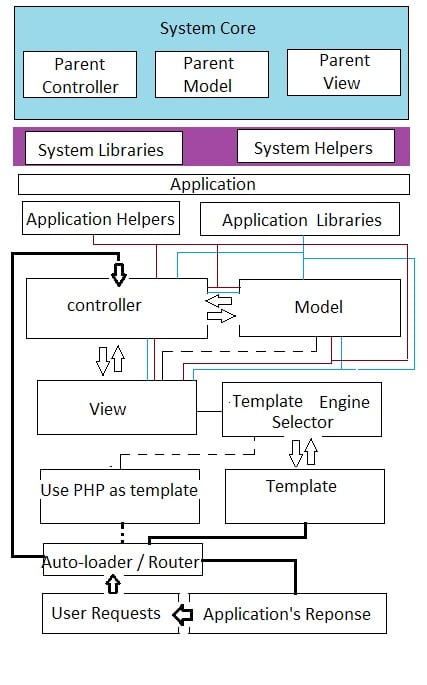CodeIgniter 3.0 is available in development, and has been taken over by British Columbia Institute of Technology, taken over from Ellis Labs, and has moved to CodeIgniter.com.
I am new to using PHP and databases, but after trying to figure out the best platform to work on a web project for being a basic-to-intermediate web worker, I decided CodeIgniter had the best potential for flexibility, and also a learning curve that I could handle.
Since I don't have much experience with C-like languages and programming, I still have troubles with getting the structure of the web programs (the application that runs to output the website data), because I'm just not used to the flow of a good, efficient program.
I started, trying out CI 2.1, then 2.2 after the security updates (solving the random hash keys' lack of randomness by choosing from a pretty much limited selection of numbers along a mathematical curve), and I was able to grasp the basics through the tutorials.
Aside, I haven't got my learnings for optimizing for producing a mobile-friendly site, either, although I have hopes that I can manage to use CSS to help ease that. My skills with HTML (and avoidance of JavaScript, having grown up with laggy webpages that used to bog down Netscape due to Java-related programming) eventually lead to me learning CSS.
Although various tutorials for CodeIgniter have expressed that the blurry area between model, view, and controller are mutable, I want to find some way to learn (and actually retain) "best practices" that I can also wrap my mind around.
My opening question here is:
What would you suggest as a good resource to learn, practice, and explore these skills -- and still maintain some closeness to the CodeIgniter 3.0 base?
Is there anyone working with CI (3.0 especially) who could be a resource that I could discuss questions with (that I have as I build my site) in the future? I suppose, in a way, this is asking about mentorship or peer mentoring.
